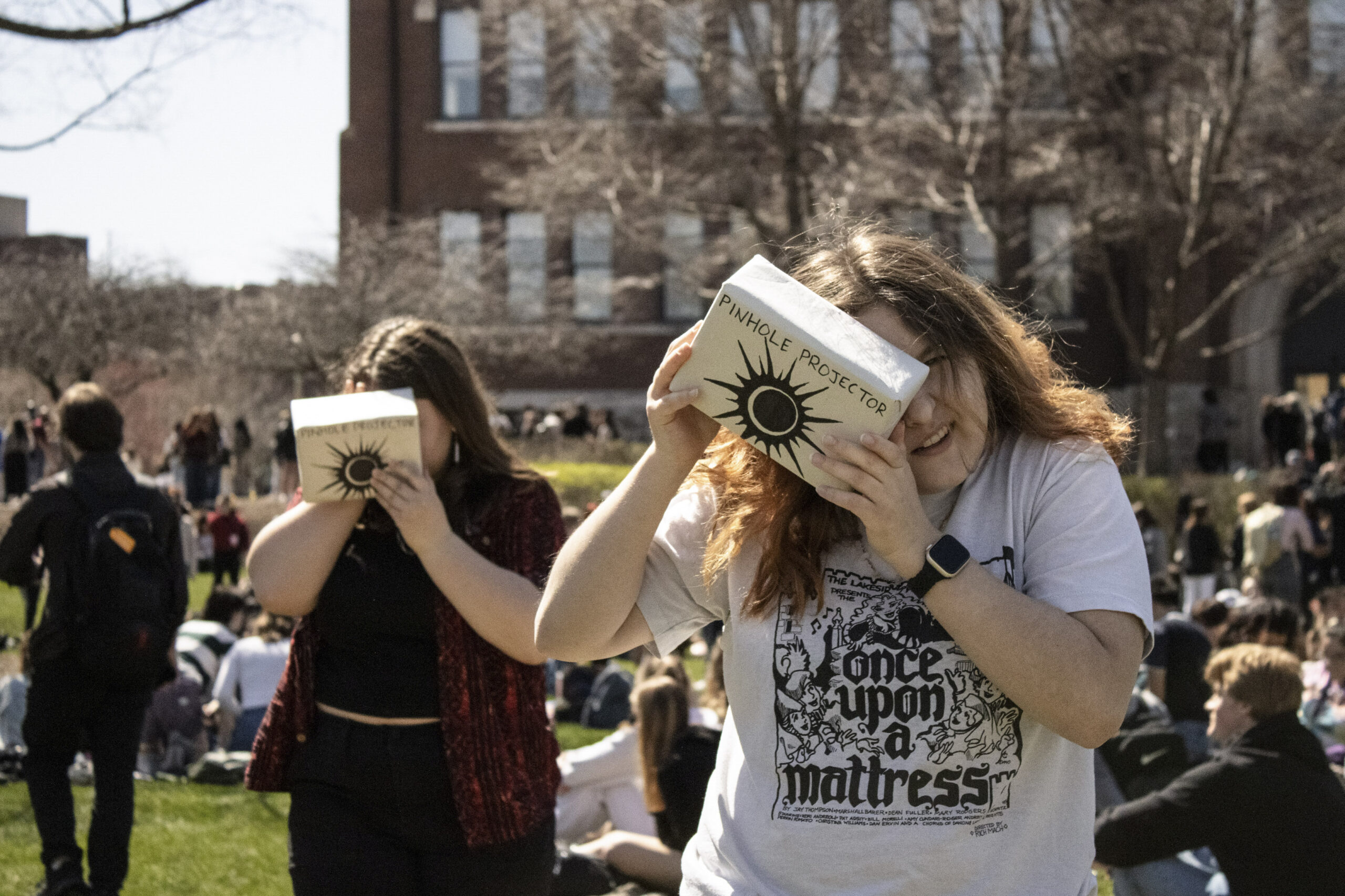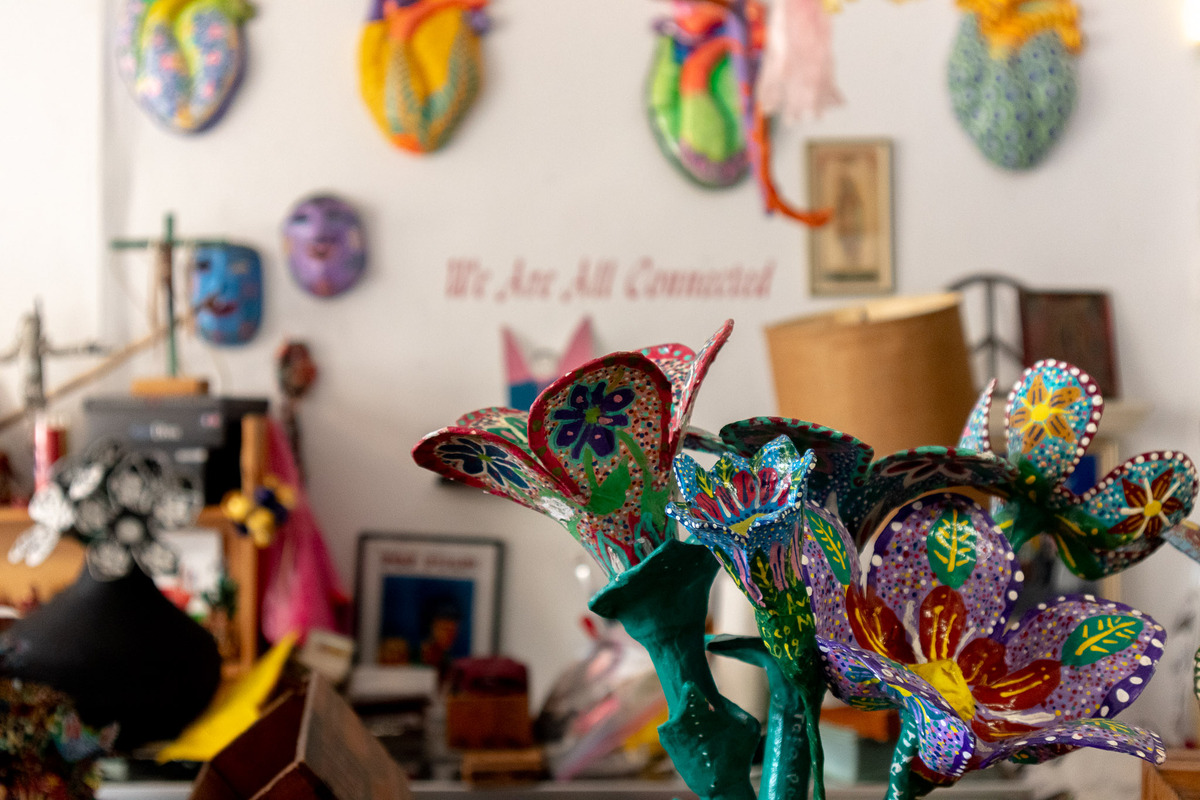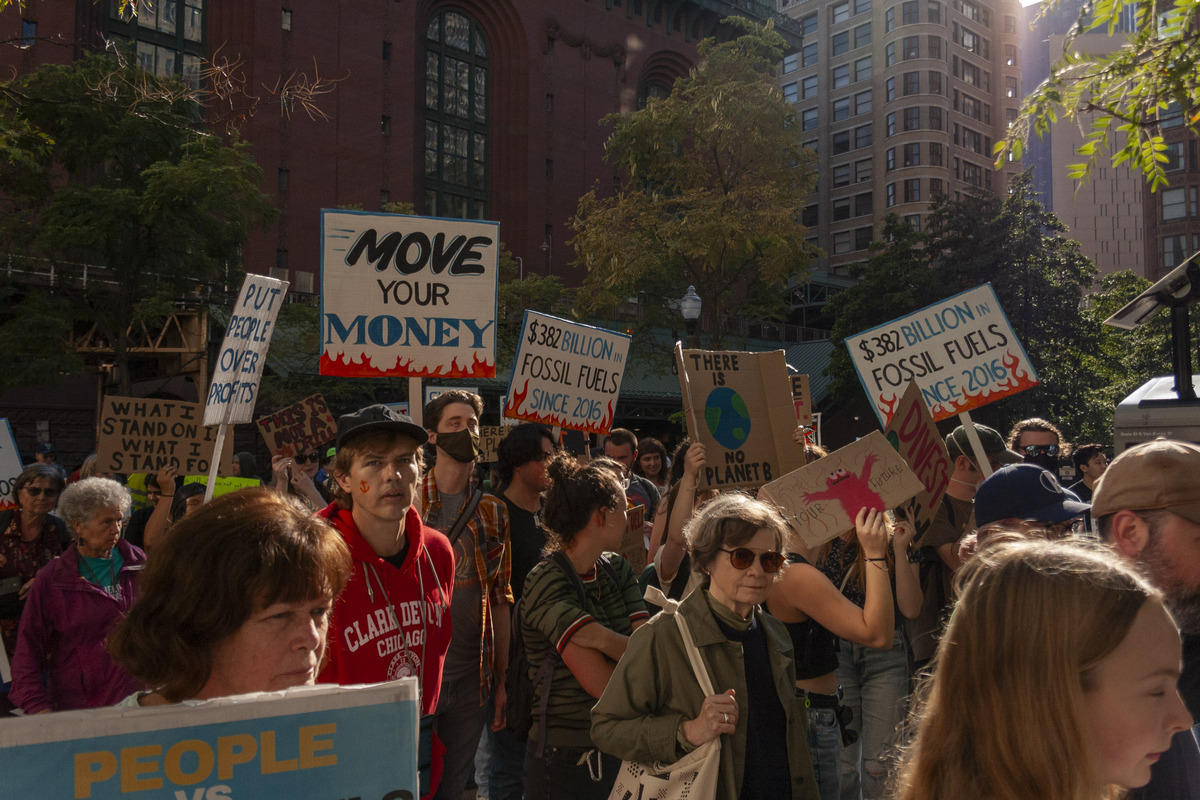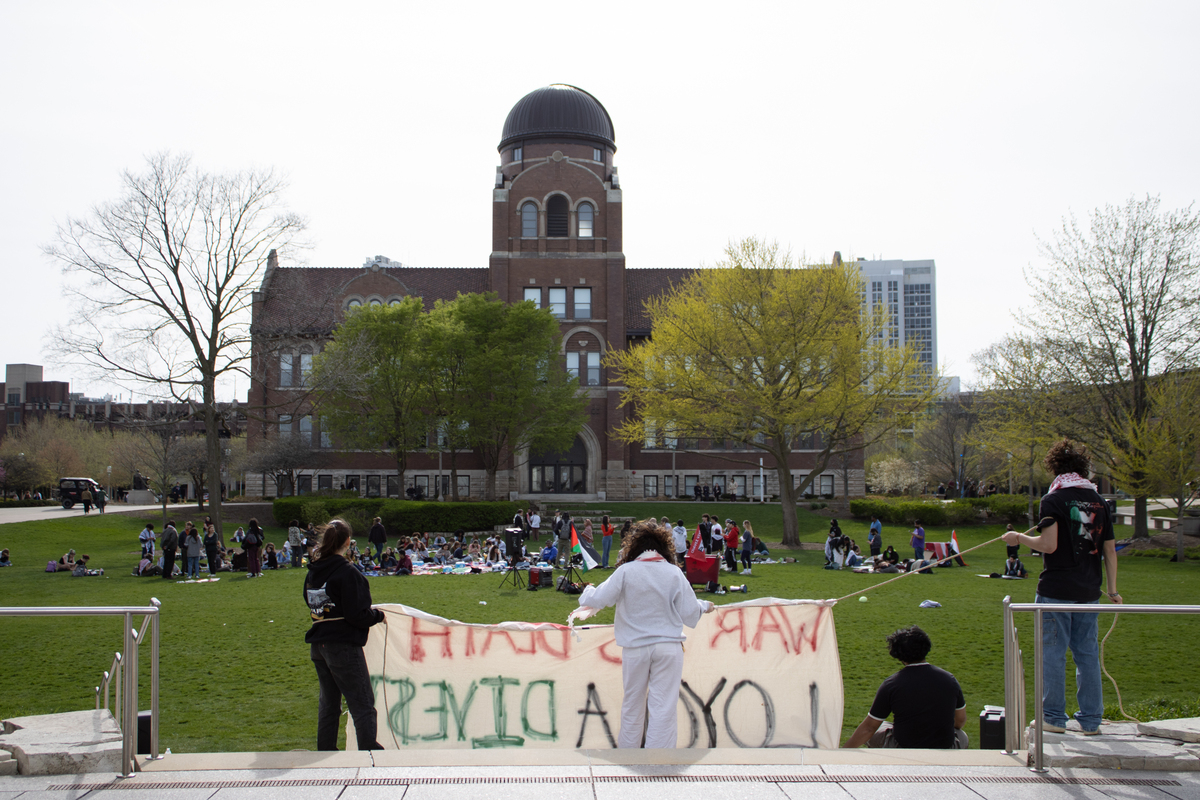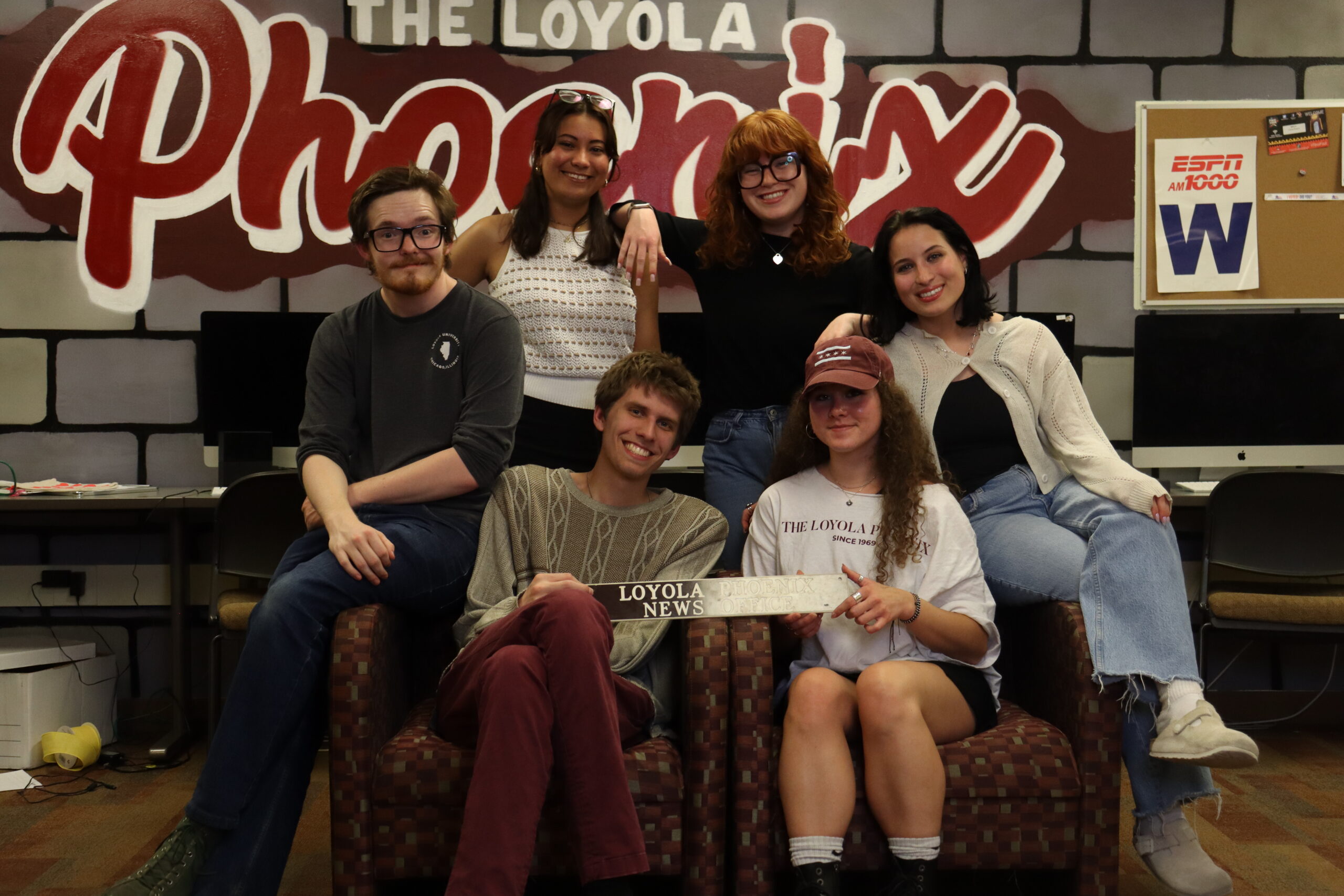SJP hosted an event on the importance of growing fruit in Gaza.
SJP Hosts Information Session on Strawberries in Gaza
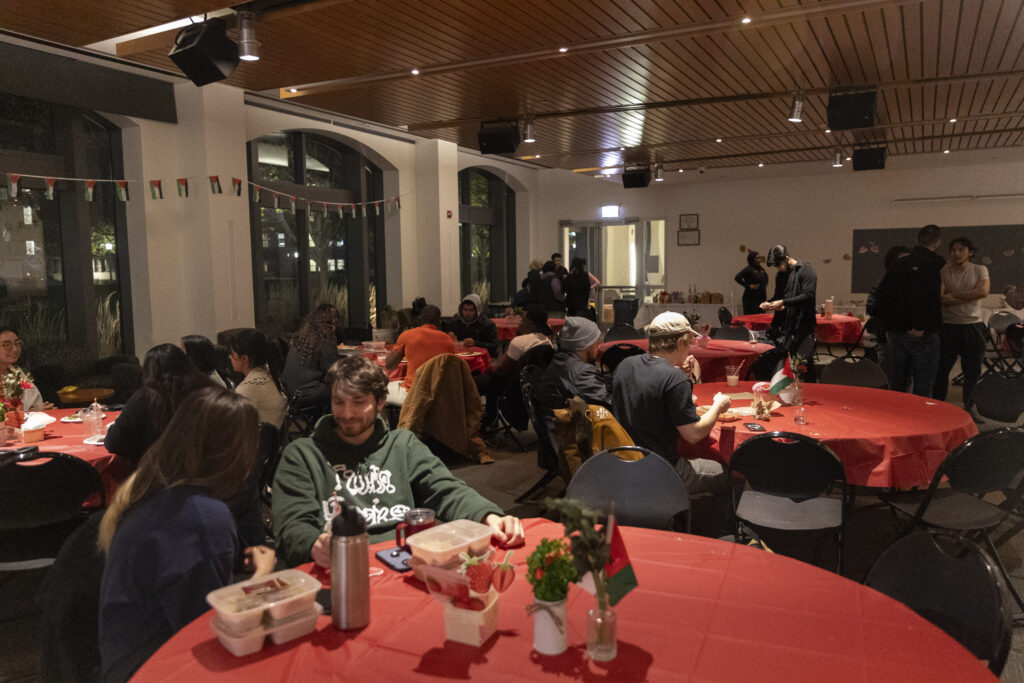
The Loyola chapter of Students for Justice in Palestine hosted an informational event in the Damen Den Nov. 13 to facilitate discussion and educate on the importance of strawberry farms and other agricultural spaces in Gaza.
The event, which was called Farrowla la Falasteen, or Strawberries for Palestine in English, was free and open to all Loyola students. Food and beverages were provided to those in attendance.
The goal of the event was to teach students about the use of agriculture as a source of income for Palestinians in Gaza, where the borders have been shut down, according to the presentation. The presenters said Gaza is known for its agricultural success, specifically when it comes to fruits such as strawberries, watermelons, oranges and citrus fruits.
SJP declined The Phoenix’s requests for comment.
Fourth-year Winston Essibu said he went to the event to become better acquainted with the history of Gaza and the things people there are struggling with.
“It was about informing the students about what is happening in Gaza because when you don’t educate us on what is going on, it might die down, and it might not get talked about,” Essibu said.
Israel declared war on Hamas following an Oct. 7 attack by Hamas militants on Israeli towns outside the Gaza strip, which led to an increase in military action from both sides within the Gaza strip, according to the Associated Press.
Israeli forces have continued to push further into Gaza with heavy military action taking place between Hamas and Israeli forces along the coast. The Israeli military offensive has killed more than 11,000 Palestinians since the declaration of war, two thirds of them women and children, according to AP. At least 1,200 have died in Israel, mostly from the initial strike.
Essibu said he appreciated how informational the event was with the use of statistics to back up what the presenters were saying.
“They talked about actual facts, they brought a lot of statistics,” Essibu said. “We talked a lot about what is going on, so I am way more informed about what is going on, and I can move forward in helping others and spreading awareness about it.”
During the event, SJP presented a slideshow with information about the fruits grown in Gaza. The slideshow began with an update on current events, including information about the most recent death toll in Gaza.
The presentation covered the population density of Gaza and read it currently sits at more than 13,000 people per square mile.
Gaza has been greatly impacted by the Israeli army, who have banned many major imports for the area including cement, gravel and steel which has in turn hurt the economy, according to the SJP presentation.
The slideshow listed a variety of other issues the area is facing, including the closure of airports, seaports and major businesses and the need for families to sell their land to survive, among other issues.
“Life in Gaza consists of bad water quality, little to no electricity, and extremely limited healthcare,” the presentation read.
Following the presentation, the hosts of the event showed a video of Hassan Abu Maryam, a strawberry farmer in Gaza, sharing his story on the time he has spent in the area unable to leave due to closure of the borders, according to The New York Times.
The growth of strawberries in Gaza is a vital part of what keeps the economy going, even through times of major conflict, Maryam said in the video.
While Maryam’s produce is allowed to cross the borders of Gaza, he himself cannot, according to the video.
Orion Carmona, a third-year global studies major with minors in philosophy and Arabic, said she has been attending SJP events since she was a first-year and has always appreciated what they had to say.
“Because I’m in the Arabic program, we were really encouraged to participate with a lot of these Arabic speaking clubs, and so SJP was just one that really fit into my schedule,” Carmona said.
Carmona said she didn’t know a lot about the situation in Gaza at first but after attending meetings, she became very interested in learning more about the conflict.
Carmona also said it’s important to continue to remember Gaza is more than just the location of a major conflict, but the home of a large number of people.
“A lot of what we talked about today was the importance of agriculture and the importance of strawberries but also keeping Gaza alive and, like, through celebrating the culture and continuing to talk about it,” Carmona said.
Hanza Voelker, a fourth-year political science major, said he was inspired to attend the event in support of the Palestinians in Gaza because it reminded him of his own Polish family experiencing oppression during World War II.
“Anytime I see other people who are oppressed, it would be a disservice to my family not to help them out,” Voelker said.
Voelker said although he has taken the time to educate himself on the history of the conflict within and around Gaza, he saw this event as an opportunity to learn more about the culture of the people.
Voelker said he hopes every student on campus takes the time to put themselves in the shoes of those who are facing the conflict directly in Gaza.
This story was updated Nov. 21. Featured image by Lilli Malone / The Phoenix




